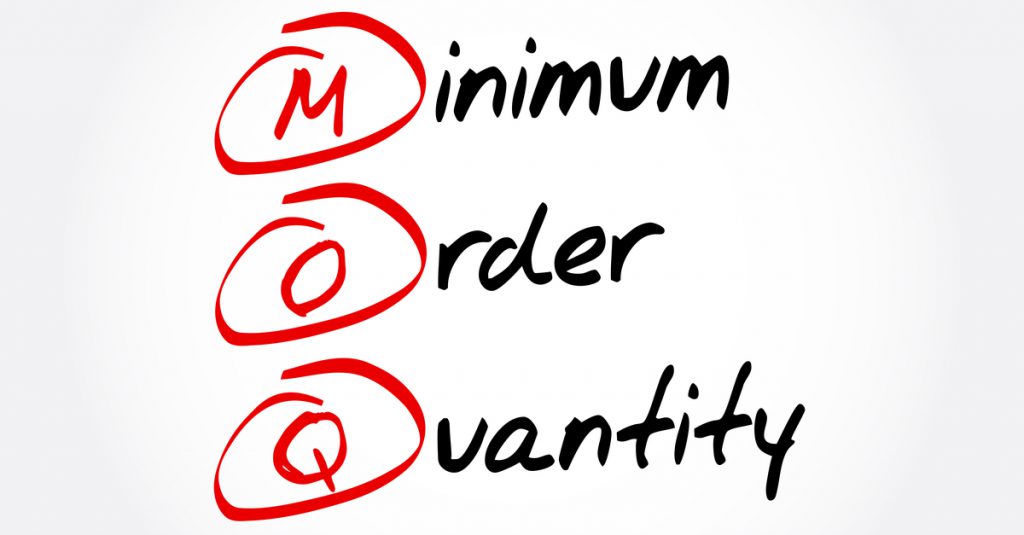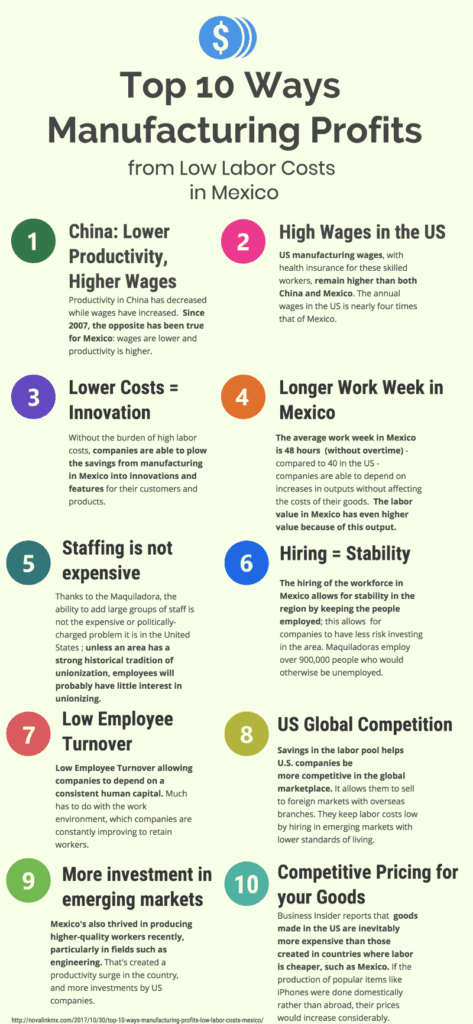Last Updated on February 26, 2024
How to Unlock Manufacturing Success by Going Beyond MOQs: Keys to Effective Partnerships and Profitability

A minimum order quantity (MOQ) is a term used in manufacturing that refers to the lowest number of units that must be purchased in a single order. It can be based on cost or volume and is used by manufacturers or suppliers to describe a production run. While MOQs are often a concern for those new to manufacturing, it is important to note that a consistent volume that engages full-time manufacturing teams year-round is more crucial. In this blog post, we will delve into the concept of MOQs, explain why they are not the most important factor, and provide insights on determining production output for a better fit with your manufacturing partner.
Why Is Minimum Order Quantity Important?
Suppliers typically set MOQs to generate profits from the sale of their products or services. After accounting for overhead and other recurring costs, a significant volume is often required to break even when selling products with minimal markup or narrow profit margins. HKTDC.com provides examples of MOQs:
- MOQ for manufacturers: If a manufacturer sets the MOQ at 1,000 units, it means buyers must order a minimum of 1,000 units at a time.
- MOQ for wholesale or retail partnerships: If a brand has an MOQ requirement, the wholesale or retail partner must place an order for at least 50 units or $500 worth of products.
However, MOQs can be flexible in certain cases, especially in long-term partnerships where negotiations may allow for adjustments. It's important to note that there are no fixed rules for MOQs, and each supplier and business type may have different setups.
Why Do Suppliers & Some Manufacturers Use Minimum Order Quantity?
MOQs are determined differently across various industries and serve several purposes. Manufacturing businesses often have significant upfront costs associated with setting up production. Without sales to cover these costs, producing the product becomes financially unviable.
“For suppliers and buyers, minimum order quantities can have several significant benefits. When managed well, the MOQ can be an important inventory control measure and keep costs down for buyers and keep profit margins in the black for suppliers.”
Netsuite
Minimum Order Quantity and Manufacturing in China
When engaging in manufacturing operations in China, suppliers typically require a minimum order quantity. Chinese manufacturers rarely accept purchase orders without agreeing to the MOQ. While low MOQs might be attractive to startups, they can be seen as a red flag. According to Global Trade Platform Cogoport, low MOQs from Chinese manufacturers are not an advantage.
“If the China minimum order quantity you are being offered is very low, be wary of the supplier. A low MOQ will almost certainly mean that the products will be of a substandard quality and have poor safety standards. It might also translate to poor customer service. “
China Suppliers require Minimum Order Quantity
When Starting a Manufacturing Operation with a Nearshore Manufacturing Partner, the MOQ Is Not the Most Important Factor
For effective nearshore manufacturing, engaging full-time manufacturing teams throughout the year is crucial. Even if you only produce a few items each month, smooth production runs and engaged teams lead to higher investment returns and profits, especially for complex products.
The cost of producing "short runs" or products that require simple, machine-based production tends to be higher for both the supplier and the customer. Clients may need to make significant upfront investments in labor, equipment, and supply chain management, making it impossible to reap the benefits. This is particularly true for easy-to-manufacture products. Some manufacturers may charge a premium price after reaching the MOQ or even halt production. Maintaining a consistent volume allows for better overhead and production cost estimations.
In nearshore manufacturing without MOQ requirements, you can take advantage of Maquiladoras in Mexico. Maquiladoras offer numerous benefits to businesses outsourcing their manufacturing needs, including unlimited duty-free imports, foreign capital investment, and various options for the type and quantity of products manufactured. They also provide reduced manufacturing costs, high-quality products, and reduced transport time and costs compared to manufacturing in Eastern countries.

Taking it Beyond MOQs: Strategies for Success
To overcome MOQ limitations and achieve manufacturing success, businesses can adopt several strategies:
- Seek out nearshore manufacturing partners: Nearshoring involves partnering with manufacturers located in geographically close countries, often offering lower labor costs and faster delivery times than traditional offshore manufacturing. This proximity can facilitate collaboration and flexibility, allowing for customized production runs and reduced MOQs.
- Explore alternative manufacturing models: Consider alternative manufacturing arrangements, such as contract manufacturing or co-manufacturing. Contract manufacturing involves outsourcing the entire production process to a third-party manufacturer, while co-manufacturing involves sharing production responsibilities with another manufacturer. These models can provide access to specialized expertise and resources, potentially reducing MOQs.
- Build strong partnerships with key suppliers: Cultivate strong relationships with suppliers by ensuring timely payments, open communication, and a commitment to long-term collaboration. These partnerships can lead to preferential treatment, reduced minimum order quantities, and discounts on raw materials or components.
- Optimize inventory management: Implement efficient inventory management practices to minimize excess stock and optimize production planning. This can reduce the financial burden of large upfront orders and lower MOQ requirements.
- Explore digital manufacturing technologies: Embracing digital manufacturing technologies, such as additive manufacturing (3D printing) and computer-aided design (CAD), can enable businesses to produce smaller batches with greater flexibility. This can reduce minimum order quantities and allow customized product offerings.
Conclusion: Beware of Manufacturers With Low Minimum Order Requirements
Manufacturers with exceptionally low minimum order requirements should be approached with caution. They may not comply with industry or safety standards, and their products may be of poor quality. The potential savings are not worth it if the product or production operation is subpar.
FAQs:
- What is a minimum order quantity (MOQ)?
A minimum order quantity is the lowest number of units that must be purchased in a single order, set by manufacturers or suppliers. - Why is minimum order quantity important?
MOQs help suppliers generate profits and cover overhead costs. They can be an inventory control measure for buyers and ensure profitable margins for suppliers. - Can MOQs be flexible?
In some cases, MOQs can be negotiated, particularly in long-term partnerships between suppliers and retailers. - Why do Chinese manufacturers require minimum order quantities?
Chinese manufacturers often require MOQs to ensure profitability and cover their own production costs. However, extremely low MOQs may indicate lower quality and potential issues with customer service. - Is MOQ the most important factor when starting a manufacturing operation?
No, a consistent volume that engages full-time manufacturing teams throughout the year is more crucial for effective nearshore manufacturing. It allows for better investment returns and accurate cost estimations.
About NovaLink
As a manufacturer in Mexico, NovaLink employs a unique approach that transcends the traditional model of shelter production. More than just the location of your manufacturing, we would like to become a partner in your manufacturing in Mexico. You will be able to relocate or initiate manufacturing for your company in Mexico in a low-cost labor environment with very little delay or up-front costs. Find out how we can help you by handling the manufacturing process.
There are NovaLink facilities in the border cities of Brownsville, Texas, Matamoros, Mexico, and Saltillo, Mexico.